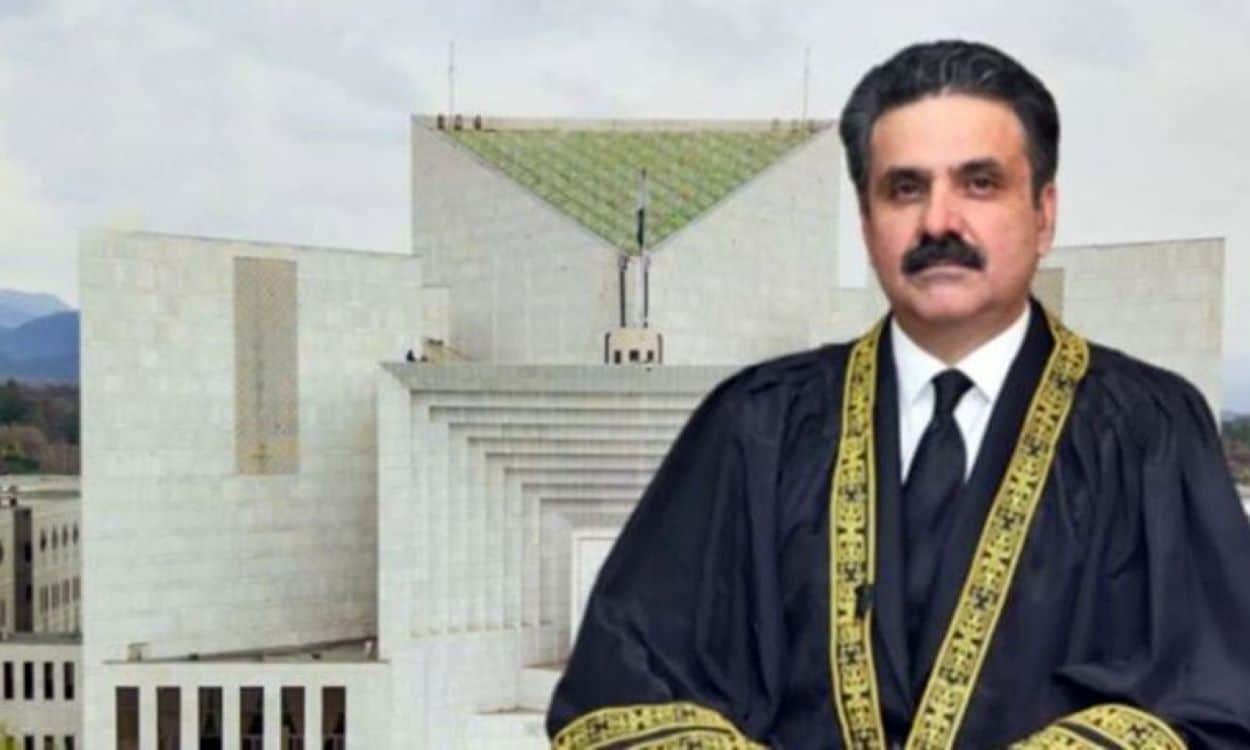Chief Justice of Pakistan (CJP) Yahya Afridi immediately established a firm stance against any interference by executive agencies in the judicial processes of superior courts, departing from his predecessor’s approach.
Upon his recent appointment, CJP Afridi engaged directly with six Islamabad High Court (IHC) judges who had appealed to the Supreme Judicial Council (SJC) on March 25 for advice on dealing with external interference. His proactive engagement contrasts with the prior top court’s approach, which, under ex-CJP Qazi Faez Isa, favoured discussing establishing an inquiry commission with Prime Minister Shehbaz Sharif to investigate the IHC judges’ concerns.
Though the Prime Minister agreed to the commission, its intended head, ex-CJP Tassaduq Hussain Jillani, opted not to participate, prompting the Supreme Court to commence suo motu proceedings based on the IHC judges’ request.
During these proceedings, the Lahore High Court (LHC) and the Peshawar High Court (PHC) recognized that interference in judicial matters is widely acknowledged but seldom openly addressed. The LHC also raised concerns about the alleged harassment of two anti-terrorism court judges and escalated the issue to the Supreme Court Registrar for comprehensive review.
Read:Islamabad High Court Resolves to Formulate Institutional Response to Judicial Interference
Justice Afridi, who had previously stepped back from this panel, stressed that the judiciary must rigorously follow the SJC’s code of conduct and uphold its constitutional independence.
Despite these actions, the larger bench has not reconvened for the suo motu hearing, which has been on hold for five months. During this hiatus, a defamation campaign seemingly targeted the six IHC judges, leading to misconduct complaints against some of them. CJP Afridi’s recent meeting with these judges thus carries significant weight, signalling a potentially more assertive judicial stance against external pressures.
Legal experts anticipate that CJP Afridi will develop a robust strategy to counteract executive encroachments on judicial independence. A senior government official echoed this sentiment to The Express Tribune, highlighting Afridi’s commitment to the trichotomy of powers principle, ensuring mutual non-interference among government branches.
Read: Supreme Court Seeks Guidance from Bar Councils on IHC Judges’ Letter
Furthermore, CJP Afridi has scheduled a Supreme Judicial Council meeting for November 8, with undisclosed topics on the agenda. He also plans to meet with administrative judges of anti-terrorism courts on November 7 to assess ongoing trials, demonstrating his active role in judicial oversight.
A senior lawyer familiar with CJP Afridi’s philosophy expressed confidence in his dedication to fortifying the judiciary and shielding judges from external influences. This unity, he argued, is crucial for the judiciary to withstand executive pressures effectively.
Amid these developments, the superior judiciary faces increased scrutiny from the executive branches, especially concerning the 26th Constitutional Amendment and the Judicial Commission of Pakistan’s proceedings, which have seen growing executive influence. This scenario underscores the significant challenges that CJP Afridi must navigate to preserve judicial integrity and independence.






